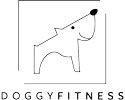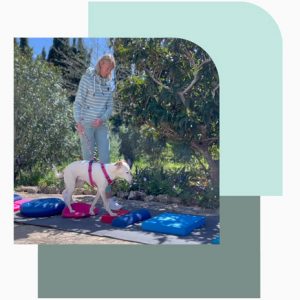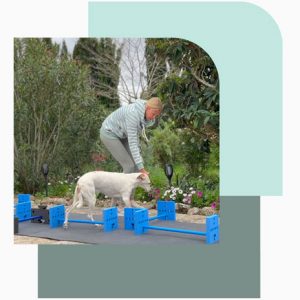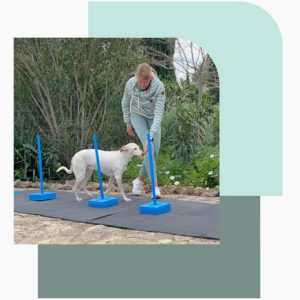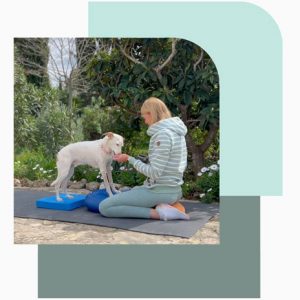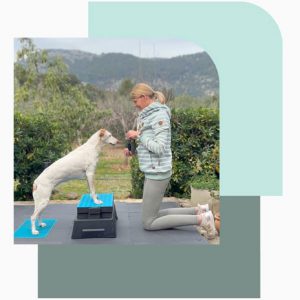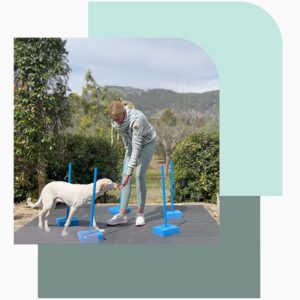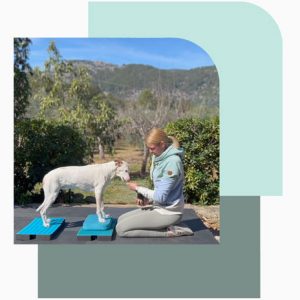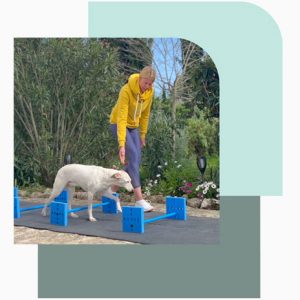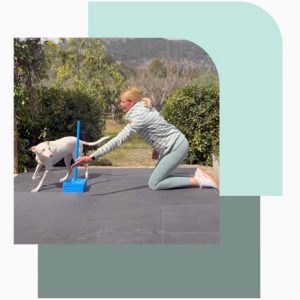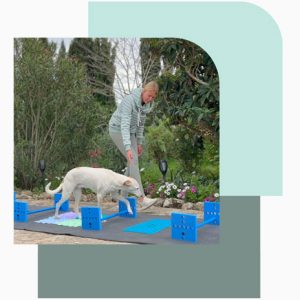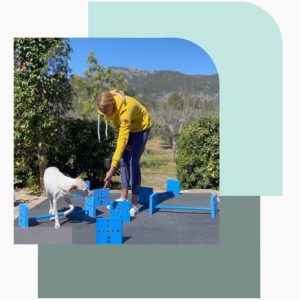Is there actually the possibility to prevent joint problems in dogs? Absolutely! But even if your four-legged friend is already suffering from joint disease, you can implement the following four tips to specifically support your dog and prevent the progression of joint problems
Basically, the keyword is: prevention joint problems in dogs
This means above all: Pay attention to these points before the first joint problems occur – that is, if possible, from a young dog’s age.
1. avoid overweight
Being overweight makes your dog sick and is a major cause of musculoskeletal disorders! Even a little too much on the ribs damage your dog permanently! This is because the joints of your four-legged friend are permanently overloaded and misloaded. Every step is difficult and painful. Mobility is restricted and tension develops. As a result, dogs affected by obesity lose muscle. The dog is in a real vicious circle.
You know that your dog has too much on the ribs? Then you should immediately make sure that he regains his normal weight – with an adapted diet and targeted exercise.
2. mobility is not a question of age
Or: a rolling stone gathers no moss! This proverb also applies to our four-legged friends. Of course, it is normal that with increasing age one or the other movement becomes more difficult. Movements become stiffer, the musculature deteriorates, strength and also the condition decrease. Nevertheless, you have the possibility to delay the process through specific exercises and training and thus keep your four-legged friend fit longer. That’s why I urge you not to start exercise training when you’re older. A regular workout should be an integral part of your dog’s life together. Joint problems in the dog
Also, many dogs find it difficult to go for longer walks at an advanced age. You should then make several and shorter trips. This way your dog gets enough exercise and stays mobile. In addition, the recovery phase is shortened.
3. natural support
You don’t have to start giving supplements when your dog is already sick. They can also help support joints and bones in a preventive way. Already in adulthood you can do something good for the joints of your dog as a precaution. Preparations such as collagen peptides or green-lipped mussel can do a good job of caring for and nourishing the joints. Overall, our nature already holds a great variety of natural means that support the dog’s body.
4. sleep like on clouds
Do you feel the same way? When you sleep on a good mattress, you don’t have back pain and you are so properly rested? Our four-legged friends are no different. Because a warm and well-padded place to sleep lets your dog be rested and protects against stiff joints. The sleeping place should always be sufficiently large and offer the possibility to stretch out completely. Always place the dog bed in a warm and draft-free place. By the way, I can highly recommend orthopedic dog beds. They are suitable for healthy and sick and older dogs alike.
Can I implement the points even if my dog is already affected?
All points also apply to your dog if he already suffers from joint problems. They help him to delay the progression of osteoarthritis, spondylosis & Co. They give your dog better mobility, relieve pain and keep him fit longer!
In Part II, I’ll give you more valuable tips on how to prevent joint disease!
All the love, your Tina
Joint problems in dog Joint problems in dog Joint problems in dog Joint problems in dog Joint problems in dog Joint problems in dog Joint problems in dog Joint problems in dog Joint problems in dog
Dieser Beitrag ist auch verfügbar auf:
Français (French)
Deutsch (German)
Español (Spanish)
